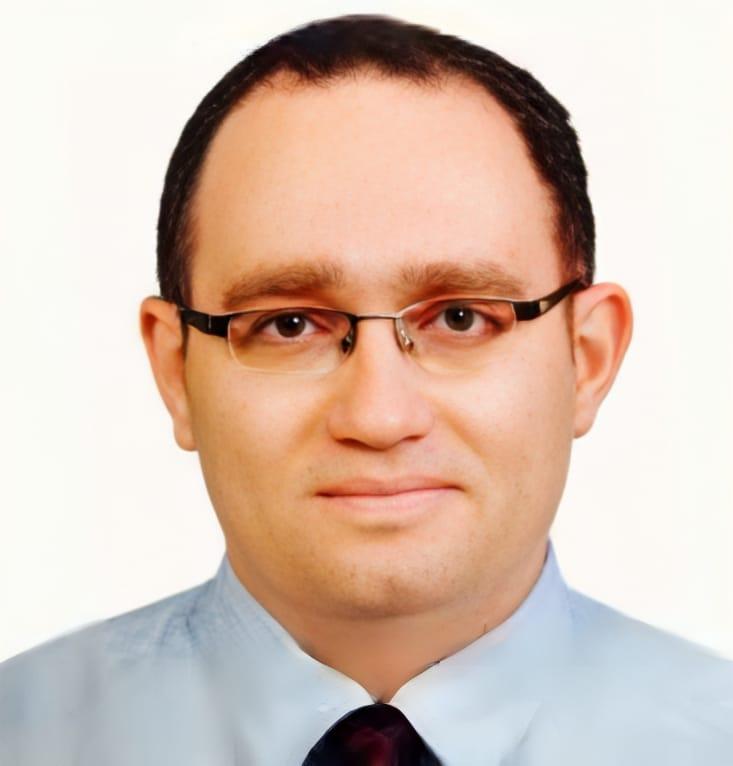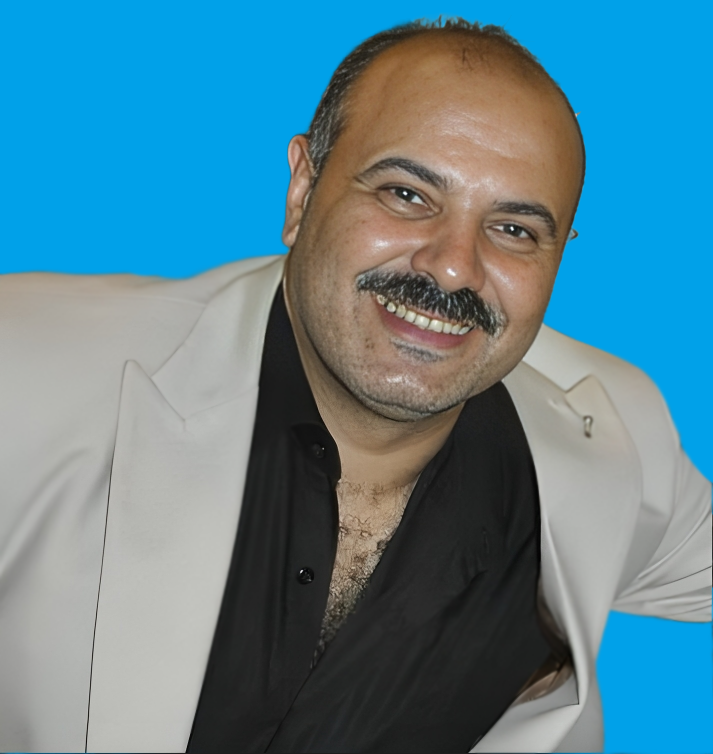Dr. Ehab Hussein – Assistant Professor of General Surgery at Ain Shams University
About Dr. Ehab Hussein
Dr. Ehab Hussein is an Assistant Professor in the Department of General Surgery at Ain Shams University and is considered one of the top surgeons in Egypt. With years of experience in the field of general surgery, Dr. Hussein specializes in treating a wide range of surgical conditions and is highly regarded for his expertise. His academic and practical work has made him one of the most sought-after doctors in his field.
Subspecialties in Surgery: Dr. Ehab Hussein is skilled in performing complex surgeries in various subspecialties, including:
General Surgery for Adults
Treatment of various surgical conditions affecting adults.
Abdominal Surgery
Treating conditions related to the abdomen, such as gastrointestinal inflammation, ulcers, and hernias.
Endocrine Surgery
Surgery for disorders of the endocrine glands, including thyroid and parathyroid issues.
Gastrointestinal Surgery and Adult Endoscopy
Using advanced endoscopic techniques to treat gastrointestinal problems, minimizing the need for open surgery.
Colon Cancer Surgery
Surgical treatment for cancerous and benign tumors of the colon.
Liver Cancer Surgery
Treatment of both benign and malignant liver tumors.
Stomach Cancer Surgery
Surgical procedures to treat tumors in the stomach, including both benign and malignant cases.
Symptoms and Medical Services Offered by Dr. Ehab Hussein:
Dr. Ehab provides treatments for a wide range of common and complex medical conditions, including:
Fistula: Treatment for various types of fistulas, including anal fistulas.
Thigh Pain: Treatment for pain caused by inflammation or injury in the thigh area.
Pilondial Sinus: Treatment for pilonidal cysts, typically found at the lower back.
Glandular Fibrosis: Diagnosis and treatment of glandular fibrosis.
Bruises: Treatment for bruises resulting from trauma.
Thyroid Cancer: Surgical treatment for thyroid cancer.
Colon Pain: Diagnosis and treatment for chronic colon pain.
Coccyx Pain: Treatment for pain in the coccyx area (lower back).
Yellow Discharge from the Anus: Diagnosis and treatment for abnormal discharge from the anus.
Lump in the Sensitive Area: Treatment for lumps that appear in sensitive areas of the body.
Painful Urination: Treatment for urinary tract issues that cause pain while urinating.
Colon Tumors: Surgery to remove benign or malignant tumors from the colon.
Gallbladder Cysts: Treatment for cysts in the gallbladder.
Breast Tumors: Diagnosis and surgical removal of breast lumps.
Anal Pain: Treatment for conditions causing pain in the anal area, such as hemorrhoids and fissures.
Gynecomastia: Treatment for breast enlargement in men.
Abscess: Treatment for abscesses or boils.
Inflammation: Treatment for various types of inflammation in the body.
Finger Injury: Treatment for minor or complex finger injuries.
Hiatal Hernia: Surgery to treat a hernia in the diaphragm area.
Hematoma: Treatment for blood clots or bruising caused by injury.
Lipoma: Removal of fatty cysts under the skin.
Ulcer: Treatment for various types of ulcers.
Hemorrhoids: Surgical treatment for hemorrhoids.
Epididymitis: Treatment for inflammation of the epididymis in men.
Hydrocele: Treatment for fluid accumulation in the scrotum.
Inguinal Hernia: Surgery to treat inguinal hernias in the lower abdomen.
Anal Mass: Diagnosis and treatment for masses around the anal area.
Breast Asymmetry: Treatment for uneven breast size, whether natural or due to medical conditions.
Pancreatic Tumors: Treatment for tumors affecting the pancreas, whether benign or malignant.
Consultation Fee:
600 EGP per visit.
Clinic Location:
New Cairo, El Lokanda Street - Roxy.
For Appointments and Inquiries:
Phone: 01021448418
Why Choose Dr. Ehab Hussein?
Extensive Specializations: Dr. Hussein has wide-ranging expertise in general surgery, including cancer surgery, gastrointestinal surgery, and endoscopy.
Modern Techniques: Dr. Hussein uses the latest surgical techniques and endoscopic procedures to ensure minimal invasive treatments and optimal outcomes.
Comprehensive Care: He provides full post-surgery care and ensures a smooth recovery process.
Reputation for Excellence: Dr. Ehab Hussein is known for his high-quality services and dedication to patient care.
Exceptional Medical Services in One Place
If you are looking for a specialist in general surgery with advanced treatment options, Dr. Ehab Hussein is the ideal choice. With his extensive experience and use of modern surgical techniques, you can rely on receiving the highest standard of care.



